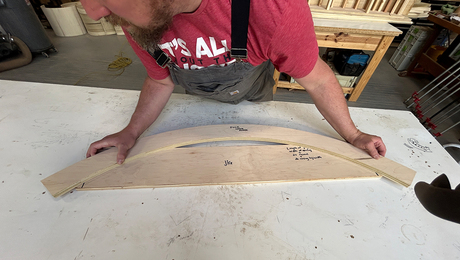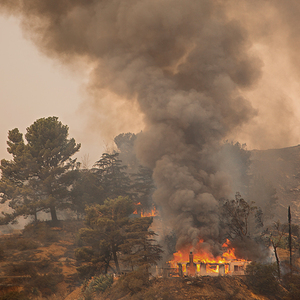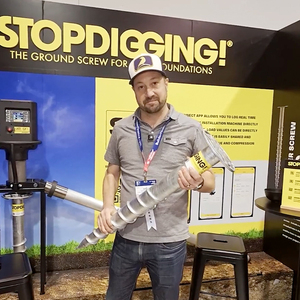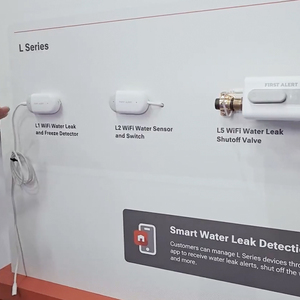I was welding out in the shop tonight. Small, 110 volt wire welder with argon – no big load on .083 mild steel.
Lights in the house always flicker a lot when I do this, but now it really seems to bother to two-year old.
So – any ideas on how I can isolate the welder? I can’t believe it’s the pure load – it’s on a 20A circuit, and my table saw, radial arm saw, big compressor, little compressor, vacuum system, all that stuff draws more and doesn’t do this – perhaps it’s something about the arc?
House has 400A service; two parallel aerial 3-0 copper from the transformer on the pole to the meter base, then two 200A disconnects flanking the meter; two 200A panels in the house each fed with 4-0 aluminum; 100A 240V subfeed to the shop, I forget the four conductors that were buried, but they were sized for the load and the 125 feet. 100 amp panel in the shop – all wiring done in 1992 to code and inspected.
Can anyone help? For a little girl’s sake?
Forrest – makin’ mad scientist flickerings




















Replies
I have a small 120 volt Lincoln wirefeed and they want it on a line capable of 25 amps.
Do you think that may be the case with yours?
I could see it making the lights flicker if they were on the same circuit as the welder receptacle, but that little load shouldn't bother the rest of your house.
Are the lights that are flickering on dimmers?
No dimmers; seems the same throughout the house.
Sounds like I ought to try it jumpered from the panel with 10-2 and a 30A 110 breaker, just to eliminate the possibility of the 20A circuit not being enough.
Thanks!
Forrest
I bet its not the load that's causing the flickerings but the prodigious amounts of RF noise that that a mig welder produces. I bet that the romex is picking up this noise like a big antenna and that's what is causing the lights to flicker. Is there some sort of RF noise suppressing filter you could put on the outlet the welder is plugged into? That could stop that source of noise.
Now if the wiring for those lights runs say above where you are welding and that wiring is acting like a big antenna then dang I'm not sure what you could do then. You would have to shield the wiring somehow. If the wiring was inside grounded metal conduit that would work.
Daniel Neuman
Oakland CA
Crazy Home Owner
RF?
Hmmmmm
or "Hummmmm"
Forrest - thinking
Frequencies above 30-40 Hz dont register on the human eye (normal TV is 30 frames per second and you do not see that flicker) so it is not RF directely, but could be interfering with solid state ballasts if that what is flickering.
What type bulbs flicker, all types??
Some types of microwave ovens and other electronics modulate and limit the current and power with subharmonics of 60 Hz. You probably have all seen flicker when the microwave oven is set at less than full power.
Your welder may be modulating the tip current in that fashion - dropping 2 or 3 cycles out of every 10, then you get 20+ A pulses and light flicker. The capacitor in the DC rectifier smooths the current out to the welder tip, but not to the line.
The input 60 Hz lines can be filtered, but not in a small size (probably an 8 inch cube). You cna probably do it with a few dollars worth of surplus magnet wire, a surplus core, and a big motor run capacitor. If you have a 'scope, hook it to a current sensor on the power going to the welder and see what the current and voltage waveforms look like, then you will know how big of a filter to make.
Thanks - I like the idea of noodling out a filter. I'll google out some info, and I think I can borrow a scope.
Forrest
If you really want to "noodle", go to
http://www.cadence.com/products/si_pk_bd/downloads/orcad_demo/index.aspx
and you can get a free student version of a good circuit analysis program that will make designing the filter a snap (after a few hours of learning the tool and how to draw the schematics).
If you get your 60 Hz voltage and current waveforms, e-mail them I'll set the program up for you - need to do an example of this type flicker for a seminar next year anyway.
Frequencies above 30-40 Hz dont register on the human eye (normal TV is 30 frames per second and you do not see that flicker) so it is not RF directely, but could be interfering with solid state ballasts if that what is flickering.
I'm not sure that its that simple. If he has the welder set up perfectly and is getting that nice frying bacon sound out of it then he would be broadcasting at what ever frequency that sound is at-probably too high to see. But I bet that the interferance is from the every once in a while big POP that always happens when I'm welding. So you would have a high frequency signal with an every couple of seconds big spike in amplitude and that could be causing the flickering.
Daniel Neuman
Oakland CA
Crazy Home Owner
30 frames but 60 fields.Some people are more sensitive to the flickering. Flourescent lights that are to the side of where I'm looking drive me nuts. When I look at my monitor here, I can see it flicker and the refresh rate is at 85 Hz.
"I cut this piece four times and it's still too short."
I think isolate with a generator first as a test of how the interference is getting on the lines.
Don't some fancy surge supression power strips incorporate filtering? Daniel Neuman
Oakland CA
Crazy Home Owner
no answer... but i weld everyday on a much smaller service and a bigger welder and i don't see what you are see'n... even when i break out my 110v stick welder which has to draw more than your 110 mig I've never seen that... only time i've seen something close some of the main lugs in the box were loose or not clamped down on the feed wire tight
p
Is your welder capable of being changed to 220 volts? Some are.... that would reduce the current draw on each phase considerably, and likely would solve your flickering problem.
<Can I isolate my welder???>
Surprised no one has said, "why, has he been bad?"
Forrest - trying to maintain a base level of sarcasm
I understand what you mean -welders-
usally picking on a ole burn scab
or their finger up their nose.
grubby lot.
Forrest - do you have a generator? Easy isolation... at least at night when it matters to your kid. We do all our welding from a gas powered unit anyway.
The welder has a transformer in it; it ought to be already isolated. I would first suggest getting the machine checked out.
Otherwise, I suspect some other problem, like a shared neutral- or loose neutral connection at the panel (possible even on the "line" side). Which direction do the lights flicker? If they flicker by getting brighter, this is a real clue that there is a neutral problem.
I'd also look closely at that nameplate. The wire may be too small- that is one thing that can make little problems seem bigger.
Is there any way to change the welder over to 220?
On a related note, I've noticed that my lights dim/flicker when my neighbors AC kicks on. Any suggestions on this one? contact the power company? Cut my neighbors power lines?
<my lights dim/flicker when my neighbors AC kicks on.>
See if you share the same transformer - my town has two houses per transformer; just hanging on the pole at the street. Some are old and undersized; town will upgrade if you complain long enough.
Forrest